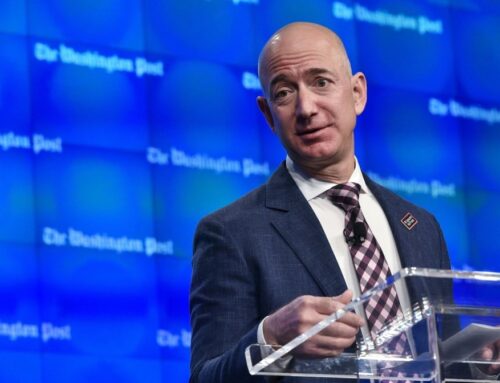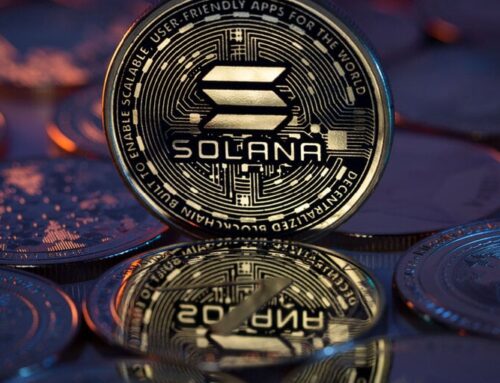Electrified Future: Rondo turns renewable electricity into industrial heat
October 29, 2024
Instead of towering smokestacks, the GreenLab industrial park in Skive, Denmark, is surrounded by wind turbines and a solar array that power its resident companies with renewable energy.
“Everything that we are doing is about electrifying,” GreenLab CEO Thomas Helsgaun told Newsweek. The seven businesses at the park include a waste handler, a plastics recycler and companies producing biogas, sustainable aviation fuel and protein for animal feed.
The public-private partnership started five years ago to place heavy industry alongside renewable energy generation to attract businesses to the area while advancing the clean-energy transition.
Helsgaun described an integrated approach at GreenLab that encourages companies to cooperate in ways that reduce waste and cut greenhouse gas emissions. For example, the waste product from one company can become useful feedstock for another.
“That is the kind of symbiosis we try to create between the companies, and thereby creating new value streams,” he said.
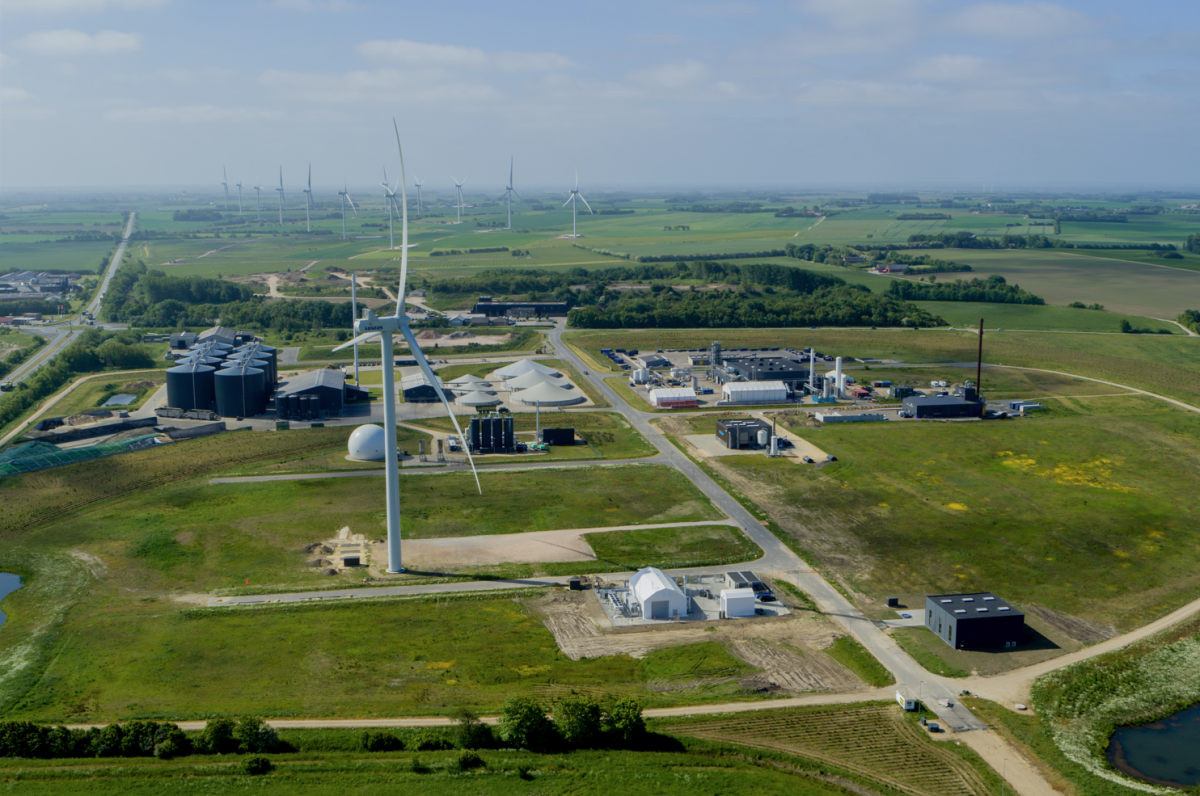
The GreenLab industrial park in Denmark is adding a Rondo Energy heat battery to convert electricity from wind and solar into heat that will be available around the clock for manufacturing companies at the park.
Courtesy of GreenLab
To power this activity, the site has 13 wind turbines and a solar facility collectively producing about 80 megawatts of renewable energy. Co-locating manufacturing with energy production means the companies are assured a clean power source without having to build long-distance transmission lines or compete with other users on the region’s power grid.
“If we want to electrify everything, then the electric grid as we know it is simply too small,” Helsgaun said.
However, there are some obstacles GreenLab must overcome to power businesses without pulling electricity from the grid. Renewable energy is only available when the wind blows or the sun shines, so some form of energy storage is required to provide power around the clock. Also, much of the energy the park’s tenants need is not electricity but heat to drive their industrial processes.
GreenLab has turned to a California-based company called Rondo Energy for a remarkably simple solution: heat batteries.
Rondo builds large brick modules lined with electrical heating elements that can convert the clean electrons from wind turbines and solar panels into heat that is stored in the bricks for later use.
“We just use the same electrical heating elements that are in your toaster,” Rondo Chief Innovation Officer John O’Donnell told Newsweek. “It’s really simple, but it took a lot of work to get there.”
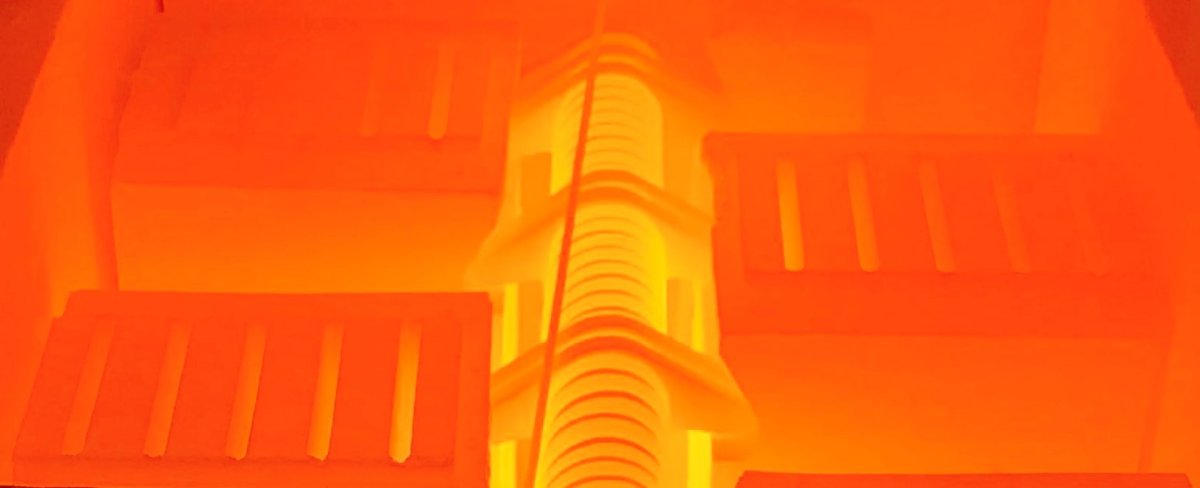
Rondo Energy’s bricks and wires being tested at high heat. The company sees opportunities for a range of energy-intensive industries to use thermal batteries and cut emissions.
Courtesy of Rondo Energy
GreenLab is connecting a 100-megawatt hour Rondo heat battery to its wind and solar power supply and expects it to be operational in about a year. It’s one of three industrial sites in Europe adopting Rondo’s technology with the help of funding from Breakthrough Energy Catalyst and the European Investment Bank announced in June.
Newsweek first profiled Rondo in May after the company was part of a U.S. Department of Energy award to decarbonize heavy industry. Beverage giant Diageo won a $75 million DOE grant in March to replace the natural gas boiler at a Bulleit Bourbon distillery in Kentucky with a Rondo heat battery. Since then, Rondo has been on a winning streak of major commercial developments.
In addition to the European projects, Rondo has inked deals with Eastman for energy storage at a Texas recycling facility, and clothing retailer H&M is investing in Rondo to use heat batteries to decarbonize its supply chain.
“Replacing coal boilers in Southeast Asian garment factories is in our mission set now,” O’Donnell said, remarking on the range of industrial sectors considering heat batteries as a way to cut emissions and make wider use of what is quickly becoming the cheapest available energy.
According to the International Energy Agency, renewable energy—especially solar PV—is now the most affordable way to generate electricity, and in places where renewables are abundant, the power supply is often greater than demand at certain times of the day. Energy storage technologies that can quickly charge up on that cheap, clean energy at peak times of sun and wind can change the economics of industrial energy needs, O’Donnell explained.
He pointed out a graph showing peak energy supply during the afternoon on a sunny California day when more solar energy flowed into the electric grid than was needed.
“If you had a system that could charge in four hours, your energy that day could have been free,” O’Donell said.
The combination of cheap renewables and energy storage could change the way we think about some parts of the clean-energy transition, he said.
Heavy industry has long been considered “hard to decarbonize” because of the industrial sector’s large energy needs, high emissions and sensitivity to cost margins. But the prospect of 24/7 power that’s both clean and cheap could turn that assumption on its head.
“Yeah, it was hard to decarbonize, but now every single project we’re building is delivering energy cheaper than business as usual,” O’Donnell argued. “For much smaller amounts of capital, we can make a much bigger impact in climate.”
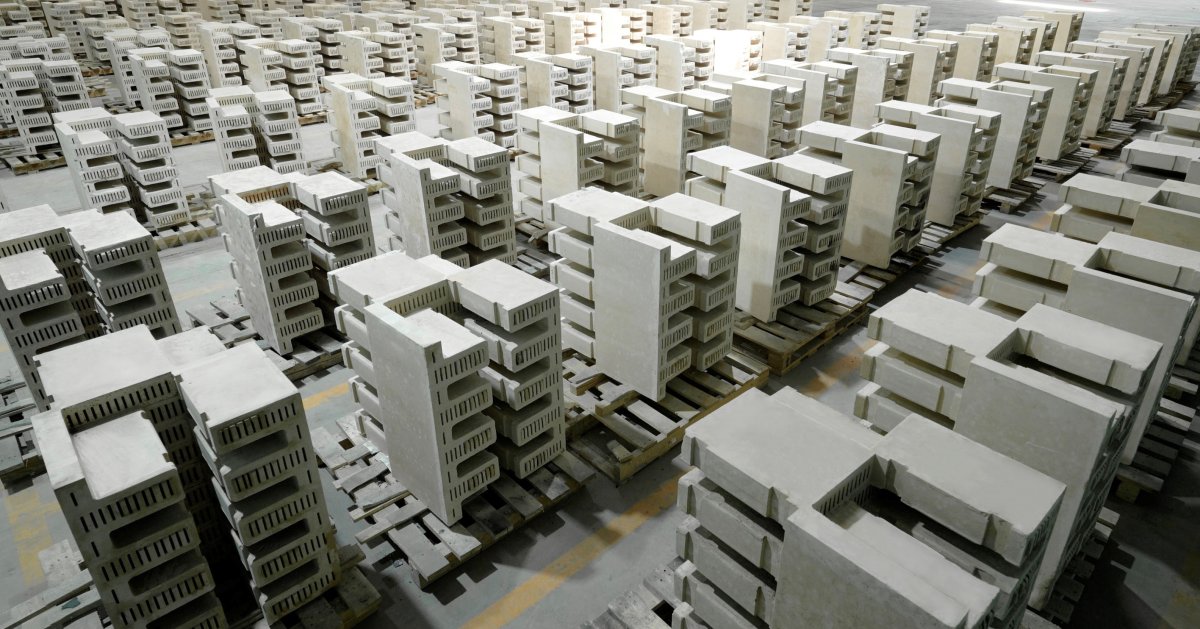
Heat brick modules made by Rondo Energy. Thermal coils inside superheat the bricks, allowing clean electricity to be used as industrial heat.
Courtesy of Rondo Energy
Industry is a huge part of the climate challenge. Industry is second only to transportation in total greenhouse gas emissions, and by some estimates, the energy burned to produce industrial heat accounts for as much as a fifth of global CO2.
Several studies have found that electric thermal energy storage can cut a big chunk of those emissions by helping to replace fossil fuels such as coal and gas with clean electricity. The nonpartisan climate policy think tank Energy Innovation, for example, found that electric thermal storage can replace 75 percent of the gas used by U.S. industry at prices on par with gas.
At GreenLab in Skive, Helsgaun said Rondo’s heat batteries will first be used by a company producing biogas and will help the company cut its CO2 emissions by 80 percent. Later, he expects the heat batteries to become a bigger part of the park’s system as more companies realize both the economic and environmental benefits.
“I’m really big on accelerating the green transition, but it needs to go hand in hand with economically viable models,” he said. “Otherwise, it will not be sustainable in the future.”
Search
RECENT PRESS RELEASES
Related Post
